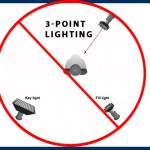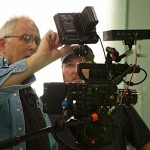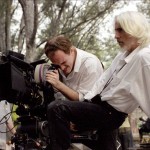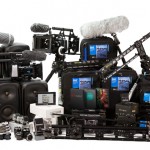
The other day I was talking to a guy who is trying to get into the video production business. He was asking me of for some technical advice as well as any suggetions I had on getting business and getting his name out there.
I quickly noticed as the conversation went on that he was making several mistakes that I have seen many make when entering the world of filmmaking. Regardless if the goal is to make feature films or local corporate films, there are certain mistakes that I have noticed come up time and time again. Make sure you avoid them and watch how the wind starts to blow in your favor. . . and fast!
10 Mistakes Aspiring Cinematographers Make
1. Waiting for the right gear
If you have a film you would like to create, and know it would look awesome if you shot it with high-end gear – and you keep putting it off until the stars align perfectly, then I got news for you – you’re probably overthinking it. Start small and start with what you have. Talent, skill, excellent pre-production(!), the right crew(!) and a host of other factors will make far more difference in your final film than any piece of gear can (yes, including camera!).
2. Working alone
The best way to get better is by working with those that are better than you. Look for pros that you can join in assisting in their productions – regardless of the capacity. I would sweep the floors of a set if it was the right production 🙂 If you enjoy being the most skilled guy on set, then we gotta change that first . . . asap! It’s similar to the wonderful notion of having two ears and one mouth . . . so we can listen (and thus learn!) twice as much as we speak. Put yourself in scenarios where other people are doing the talking (because they know more than you) and watch how fast your skills climb!
3. What lighting gear do you have?
In the end of the day, you gotta master lighting. So get some lights (and flags/diffusion/reflectors etc). DIY or cheap ones will do just fine. Once you got something in hand, research a scene you want to emulate and see if you can make it happen. There’s no shortcuts on this one. You reap what you sow, so go out and practice.
4. Avoiding the art of controlling natural light
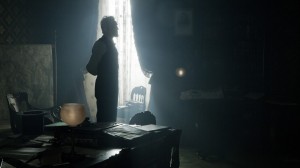 Learning to control natural light will teach you about how light works. Light is light. It doesn’t matter where it comes from. Often
Learning to control natural light will teach you about how light works. Light is light. It doesn’t matter where it comes from. Often
you don’t need to add light to a scene but exactly the opposite; you need to take away light. A beautiful image is made up of light and shadow and by learning to take natural light and bouncing it, “cutting” it (taking light away with flags), softening it etc., you will quickly become a master of lighting. Often, controlling natural light will be your only option, or your best/quickest option on set, so start playing with it.
5. Following the wrong blogs (less toys and more technique)
First of all – sign up to this blog and every CineSummit – obviously! Seriously though, how often are you on blogs that argue about camera specs? You’ve been busted! Stop that and start looking for blogs that talk about technique. In the end of the day, average gear in the hands of talented people will create amazing results and all the gear in the world will not help those that haven’t put in their time. So start with this blog, of course, watch all the interviews, and you’ll learn a ton in no time.
6. Filming the same way all the time
One thing that happens often is that in the beginning we take whatever work comes our way. This is to be expected but what happens is that you end up only having that type of work to showcase which leads to more of that type of work. In time, a person develops expertise in just one style and will find it hard to execute other types of work. If you want to grow it’s important to push the envelope and try filming different styles and genres.
7. Investing in the wrong gear first.
We all have gear fetishes but first things first. Don’t worry about a motion capture system or great monitor when you’re still shooting on a kit lens! Don’t worry about a mni-Helicopter when you don’t have a decent light kit. First things first.
8. Lack of personal projects
This is a BIGGIE! As you’ve seen me say often, if you don’t get out there and learn via trial and error you just won’t see improvement. The best way to do that is to shoot your own projects . . . for yourself! Not for a pay check. You’ll learn so much and what’s more, it WILL bring in paid work. That may not be the goal of a personal project but as far as the audience is concerned, they could care less if you were paid or not. If they like it, you will get a call and your name w
ill get out there.
9. Forgetting to analyse and understand other work
Another BIGGIE! Seen a shot, a short film, or music video that you like? Pause it. Stare at it. Break it down (Adam Patch at 23:15). Ask other pros why it looks so good. Heck, even send an email to the creator with a compliment and ask some questions! You’ll learn a lot and you’ll be armed to compare it with your work, which will lead to improvement the next time you go out.
10. Not sharing and getting constructive criticism
This can yield massive returns. Share your work with people that are ahead of you in skill and instruct them, in no uncertain terms, that they are to let ‘er rip and give you the honest truth on how you did, and what can be improved. This alone can open up a world of insights for you.
Because I’m so cool, here’s a bonus one (and it may be the biggest one)
11. Only working on paid projects
That’s right! I’m saying work for free! (Adam Patch 28:30). What I mean is, look for opportunities that you feel you can grow from and make connections, and offer to show up and help or be a part of the production. I once rented out my small crane to a production and when I heard a top DP was going to be filming, not only did I let them use it for extra days, I also tagged along on the filming, assisted the DP and basically became part of the crew for several days. I made several great professional connections AND ended up being called to do a pick up shoot for that same video. The next year the Director called me to film his next project because that same DP was not available. Working for free, when YOU decide it is something you will grow from will have a ripple effect of positive results.
I’ve certainly made several of these mistakes but I know that any of my current abilities is due to avoiding a majority of them. Some of these I have stumbled upon on accident and some of them I was outright told to do. All in all, I believe if you proactively go out and implement just a few of the above you will find that in 6-12 months you are playing in a whole other league.
HAVE YOU MADE ANY OF THE ABOVE MISTAKES IN THE PAST?
WHICH OF THE ABOVE POINTS ARE YOU EXCITED TO PUT INTO ACTION?



